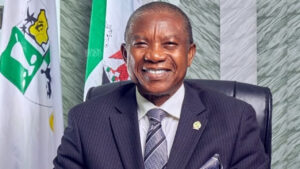The Africa Economic Summit Group has issued a call to action for African leaders to significantly enhance Intra-African trade, aiming to boost trade among African nations from the current 14 percent to a remarkable 50 percent.
During a press conference in Abuja, Dr. Sam Ohuabunwa, President of the Africa Economic Summit Group, shared the group’s resolutions to strengthen Intra-African trade and uplift the continent’s economy.
Dr. Ohuabunwa emphasized that Africa currently has the lowest level of inter-regional trade in the world, underscoring the urgent need for African governments to embrace the vision of “One Africa, One Economy.”

He stated, “This is Africa’s golden opportunity to leverage its collective strength and become truly competitive. We implore all African leaders to champion the concept of one Africa, one family, one economy.”
Dr. Ohuabunwa stressed the importance of accelerating the implementation of the African Continental Free Trade Area (AfCFTA) to stimulate economic growth and facilitate intra-African trade.
“We must deliberately dismantle any barriers that hinder the full adoption and implementation of the AfCFTA. Our target is to achieve a minimum of 50 percent intra-African trade by 2030, a significant increase from the current 14 percent.”
He called upon African countries to explore innovative funding mechanisms, mobilize domestic and foreign investments for critical projects, minimize reliance on borrowing, prioritize strategic projects, and utilize internally generated resources.
Furthermore, he encouraged transitioning from aid dependence to trade reliance, while providing incentives for diaspora bonds and investments.
The group also advocated for substantial investment in human capital development, with a focus on prioritizing education and healthcare to cultivate a skilled workforce capable of serving Africa’s needs and providing services internationally.
They further emphasized the importance of entrepreneurial education models to expand opportunities for wealth creation and reduce unemployment.
In urging African countries to strengthen governance, the group highlighted the significance of building robust leadership systems to elevate Africa’s leadership capabilities.
They emphasized the need for enhanced accountability through citizen activism, while leveraging technology and open government systems to promote transparency and combat corruption.
Dr. Ohuabunwa advised African governments to foster a conducive business environment by simplifying regulations, minimizing bureaucracy, and promoting entrepreneurship.
Additionally, he emphasized the importance of gender equity and inclusiveness in African political leadership, particularly by empowering the younger generation.
He concluded by stressing the need for a shared vision among the executive, legislative, and judiciary branches of government to achieve good governance.
Dr. Ohuabunwa emphasized that attracting investments should be a central focus of African economic policies, as investments create businesses, programs, and projects, which in turn generate employment and drive wealth creation. Reducing poverty must remain a key performance indicator for national political leaders.




